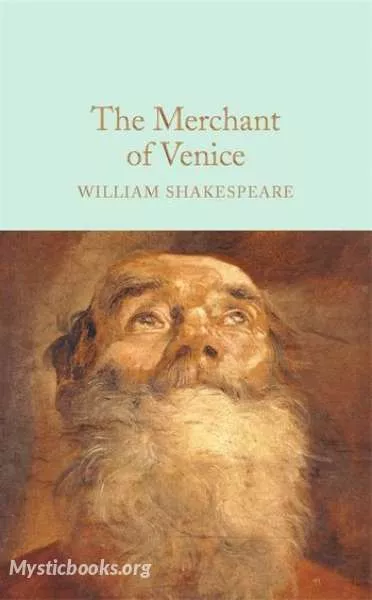
The Merchant of Venice
'The Merchant of Venice' Summary
Bassanio, a young Venetian of noble rank, wishes to woo the beautiful and wealthy heiress Portia of Belmont. Having squandered his estate, he needs 3,000 ducats to subsidise his expenditures as a suitor. Bassanio approaches his friend Antonio, a wealthy merchant of Venice, who has previously and repeatedly bailed him out. Antonio agrees, but since he is cash-poor – his ships and merchandise are busy at sea to Tripolis, the Indies, Mexico and England – he promises to cover a bond if Bassanio can find a lender, so Bassanio turns to the Jewish moneylender Shylock and names Antonio as the loan's guarantor.
Antonio has already antagonized Shylock through his outspoken antisemitism and because Antonio's habit of lending money without interest forces Shylock to charge lower rates. Shylock is at first reluctant to grant the loan, citing abuse he has suffered at Antonio's hand. He finally agrees to lend the sum to Bassanio without interest upon one condition: if Antonio were unable to repay it at the specified date, Shylock may take a pound of Antonio's flesh. Bassanio does not want Antonio to accept such a risky condition; Antonio is surprised by what he sees as the moneylender's generosity (no "usance" – interest – is asked for), and he signs the contract. With money in hand, Bassanio leaves for Belmont with his friend Gratiano, who has asked to accompany him. Gratiano is a likeable young man, but he is often flippant, overly talkative, and tactless. Bassanio warns his companion to exercise self-control, and the two leave for Belmont.
Meanwhile, in Belmont, Portia is awash with suitors. Her father left a will stipulating that each of her suitors must choose correctly from one of three caskets, made of gold, silver and lead respectively. Whoever picks the right casket wins Portia's hand. The first suitor, the Prince of Morocco, chooses the gold casket, interpreting its slogan, "Who chooseth me shall gain what many men desire", as referring to Portia. The second suitor, the conceited Prince of Aragon, chooses the silver casket, which proclaims, "Who chooseth me shall get as much as he deserves", as he believes he is full of merit. Both suitors leave empty-handed, having rejected the lead casket because of the baseness of its material and the uninviting nature of its slogan, "Who chooseth me must give and hazard all he hath". The last suitor is Bassanio, whom Portia wishes to succeed, having met him before. As Bassanio ponders his choice, members of Portia's household sing a song that says that "fancy" (not true love) is "engend'red in the eyes, / With gazing fed";[2] Bassanio chooses the lead casket and wins Portia's hand.
At Venice, Antonio's ships are reported lost at sea, so the merchant cannot repay the bond. Shylock has become more determined to exact revenge from Christians because his daughter Jessica eloped with the Christian Lorenzo and converted. She took a substantial amount of Shylock's wealth with her, as well as a turquoise ring which Shylock had been given by his late wife, Leah. Shylock has Antonio brought before court.
At Belmont, Bassanio receives a letter telling him that Antonio has been unable to repay the loan from Shylock. Portia and Bassanio marry, as do Gratiano and Portia's handmaid Nerissa. Bassanio and Gratiano leave for Venice, with money from Portia, to save Antonio's life by offering the money to Shylock. Unknown to Bassanio and Gratiano, Portia sent her servant, Balthazar, to seek the counsel of Portia's cousin, Bellario, a lawyer, at Padua.
The climax of the play is set in the court of the Duke of Venice. Shylock refuses Bassanio's offer of 6,000 ducats, twice the amount of the loan. He demands his pound of flesh from Antonio. The Duke, wishing to save Antonio but unable to nullify a contract, refers the case to a visitor. He identifies himself as Balthazar, a young male "doctor of the law", bearing a letter of recommendation to the Duke from the learned lawyer Bellario. The doctor is Portia in disguise, and the law clerk who accompanies her is Nerissa, also disguised as a man. As Balthazar, Portia in a famous speech repeatedly asks Shylock to show mercy, advising him that mercy "is twice blest: It blesseth him that gives and him that takes" (Act IV, Sc 1, Line 185). However, Shylock adamantly refuses any compensations and insists on the pound of flesh.
As the court grants Shylock his bond and Antonio prepares for Shylock's knife, Portia deftly appropriates Shylock's argument for "specific performance". She says that the contract allows Shylock to remove only the flesh, not the blood, of Antonio (see quibble). Thus, if Shylock were to shed any drop of Antonio's blood, his "lands and goods" would be forfeited under Venetian laws. She tells him that he must cut precisely one pound of flesh, no more, no less; she advises him that "if the scale do turn, But in the estimation of a hair, Thou diest and all thy goods are confiscate."
Defeated, Shylock consents to accept Bassanio's offer of money for the defaulted bond: first his offer to pay "the bond thrice", which Portia rebuffs, telling him to take his bond, and then merely the principal; but Portia also prevents him from doing this, on the ground that he has already refused it "in the open court". She cites a law under which Shylock, as a Jew and therefore an "alien", having attempted to take the life of a citizen, has forfeited his property, half to the government and half to Antonio, leaving his life at the mercy of the Duke. The Duke spares Shylock's life and says he may remit the forfeiture. Portia says the Duke may waive the state's share, but not Antonio's. Antonio says he is content that the state waive its claim to half Shylock's wealth if he can have his one-half share "in use" until Shylock's death, when the principal would be given to Lorenzo and Jessica. Antonio also asks that "for this favor" Shylock convert to Christianity and bequeath his entire estate to Lorenzo and Jessica. The Duke then threatens to recant his pardon of Shylock's life unless he accepts these conditions. Shylock, re-threatened with death, accepts with the words, "I am content." (IV, i).
Bassanio does not recognise his disguised wife, but offers to give a present to the supposed lawyer. First she declines, but after he insists, Portia requests his ring and Antonio's gloves. Antonio parts with his gloves without a second thought, but Bassanio gives the ring only after much persuasion from Antonio, as earlier in the play he promised his wife never to lose, sell or give it. Nerissa, as the lawyer's clerk, succeeds in likewise retrieving her ring from Gratiano, who does not see through her disguise.
At Belmont, Portia and Nerissa taunt and pretend to accuse their husbands before revealing they were really the lawyer and his clerk in disguise (V). After all the other characters make amends, Antonio learns from Portia that three of his ships were not stranded and have returned safely after all.
Book Details
Language
EnglishOriginal Language
EnglishPublished In
1600Authors

William Shakespeare
United Kingdom
William Shakespeare was born on April 23, 1564, in Stratford-upon-Avon. The son of John Shakespeare and Mary Arden, he was probably educated at the King Edward VI Grammar School in Stratford, where he...
Books by William ShakespeareDownload eBooks
Listen/Download Audiobook
Related books

Shakespeare Monologues Collection vol. 07 by William Shakespeare
This is the seventh collection of monologues from Shakespeare’s plays. Containing 20 parts. William Shakespeare (April 26, 1564 – April 23, 1616) re...
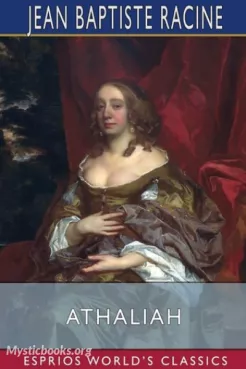
Athaliah by Jean Racine
In the ancient kingdom of Judah, a relentless battle for power ensues, shrouded in a web of ambition, loyalty, and divine intervention. Jean Racine's...
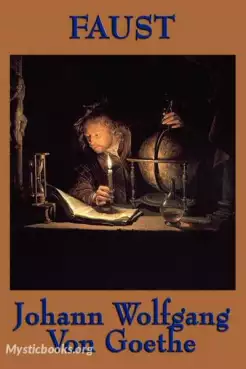
Faust I by Johann Wolfgang von Goethe
Faust is a tragic play in two parts by Johann Wolfgang von Goethe, usually known in English as Faust, Part One and Faust, Part Two. Although rarely st...

Curculio; or, The Forgery by Titus Maccius Plautus
Step into the lively streets of ancient Athens and experience a world of comedic chaos, cunning schemes, and mistaken identities in "Curculio; or, The...
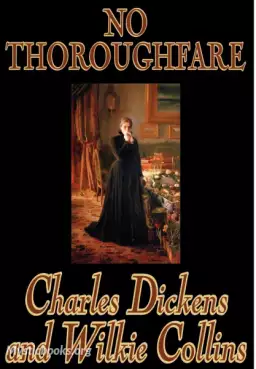
No Thoroughfare by Charles Dickens
No Thoroughfare is a stage play and novel by Charles Dickens and Wilkie Collins, both released in December 1867. The story contains crafted descriptio...

Sir Harry Wildair by George Farquhar
Sir Harry Wildair is a Restoration comedy by George Farquhar, a sequel to his earlier play *The Constant Couple*. Set in the bustling and fashionable...
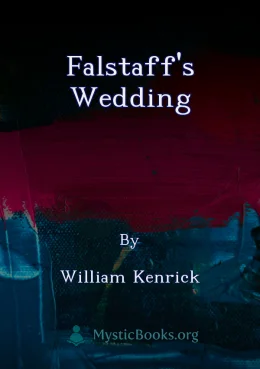
Falstaff's Wedding by William Kenrick
Falstaff's Wedding is a play written by William Kenrick in the 18th century. It serves as a sequel to Shakespeare's works Henry IV, Part 2 and The Mer...

Shakespeare Monologues Collection vol. 16 by William Shakespeare
This is the sixteenth collection of monologues from Shakespeare's plays. Our readers have chosen their favourite monologues from Shakespeare's famous...

Hamlet by William Shakespeare
Hamlet is commonly regarded as one of the greatest plays ever written. Drawing on Danish chronicles and the Elizabethan vogue for revenge tragedy, Sha...

The Alchemist by Ben Jonson
The Alchemist is a comedy by English playwright Ben Jonson. First performed in 1610 by the King's Men, it is generally considered Jonson's best and mo...
Reviews for The Merchant of Venice
No reviews posted or approved, yet...